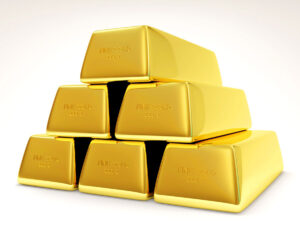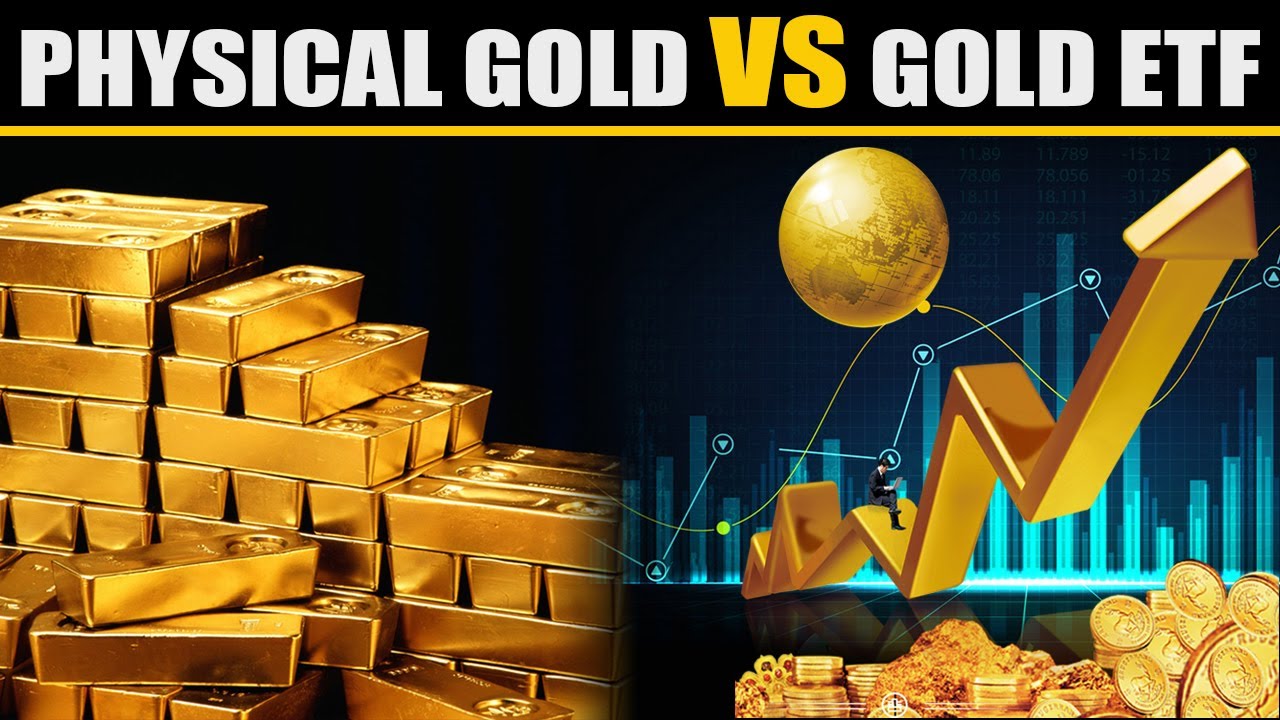The Caveats of Investing In Gold
Fun fact: Gold has been used as a currency since the era of kings and queens, while the US dollar bill has only been around for 200 years, and the United States Federal Reserve for just 100 years.
When it comes to investing in gold bullion, different people may have varying levels of comfort. Some prefer to invest in Gold ETFs (exchange-traded funds) while others prefer owning physical gold.
An ETF is essentially a basket of securities, and instead of owning a single gold stock, you own a basket of stocks backed by physical gold or silver, such as GLD and SLV. This means you don’t literally own the gold, but rather a certificate that confirms you have a certain amount of gold equivalent to the ETF you hold shares in.
Gold ETFs have become increasingly popular due to their liquidity, transparency, and low management fees. Unlike traditional stocks, ETFs typically offer exposure to a basket of securities, currencies, and of course, gold, silver, and copper.
The largest Gold ETFs are SPDR Gold Shares (GLD) and iShares Gold Trust (IAU). These ETFs allow you to invest in gold without having to handle or store the physical gold. In the event of a gold trend, they are a low-cost vehicle that can be bought or sold just like a stock. The biggest ETFs in commodities are sponsored by the World Gold Council, which seeks to reflect the price performance of gold by holding gold bars at a vault in London, before issuing shares backed by their holdings of the physical metal.
Although Gold ETFs are considered the safest and most secure way of investing in gold, silver, or copper on Wall Street, they do have certain inherent risks and liabilities that owning physical gold does not. For instance, ETF shareholders have no rights of redemption, meaning they do not actually own gold, but rather an asset backed by gold. The gold bullion bars exist, but investors cannot touch or see them.
Furthermore, ETF valuations are often not accurately correlated with the real price of gold, silver, or copper. This is because Wall Street is notoriously psychologically driven, and if a single person buys a certain stock, and millions of people soon follow suit, the stock value (and that of the ETF) can rise significantly. However, this value may not always reflect reality, and can be subject to correction or manipulation.
Direct Physical Gold Bullion Investing
Physical gold bullion, along with silver, platinum, palladium, and copper could all be bought in different ways. The most common ways are by purchasing various coins or bars. There are select coins that have numismatic value but most, quite frankly, do not. Bullion coins and bars are the most easily traded and universally recognized form of physical gold. Direct gold ownership offers the best investment hedge against potential inflation / deflation.

A True Hedge For A Liquidity Crisis
Investing in physical gold or silver bullion gives investors complete control over the storage of their metals. Precious metals can be kept in an IRS approved depository or a public private vault for secure storage. If investing in a gold-backed IRA or a self-directed gold rollover account, it is mandatory to hold metals in an IRS approved depository to comply with United States federal tax laws.
However, if you purchase gold or silver using cash, you can store it in a safe place like your home, a private vault, or wherever you feel most comfortable. It is essential to insure your precious metals just like your home, vehicles, or expensive jewelry, and Lloyd’s of London is an insurance agency famous for insuring precious metals. There are other agencies that offer similar coverage as well.
Precious metals have inherent, unhinged value. By investing in physical gold bullion, you limit your risks because you own a finite commodity that has been used as a currency for hundreds of years. Unlike paper gold, its intrinsic value cannot be manipulated.
What Does It Boil Down To?
Both Gold ETFs and physical bullion are well-respected and safe investments in a sector that has potentially unlimited growth. However, physical gold offers more protection and guaranteed value. ETFs are designed to be the safest way to invest in gold or other commodity ETFs on Wall Street. It’s important to note that Wall Street is driven by both greed and fear, and is forever cyclical and highly leveraged. Fear is the number one motivating factor in any harsh crash, and that’s why people can lose their investments overnight. Interestingly, in bad markets, big brokers tend to make the most money as it offers them the biggest opportunity to capitalize on downside leverage. They anticipate a massive crash and have positions ready to go. The job of a less connected broker is to never let you out of your account or the market. For instance, if the market is down 800 points, your broker may convince you to buy more, saying it’s just a bad day and prices are cheaper now.

”Looking at the bigger picture, maybe it’s indicative of a much more sophisticated, systemic, polarizing issue that transcends anything your broker has any clue about. At the end of the day, your broker makes money by making trades and keeping you in the market. If brokers make money in both good and bad markets, the question remains whether or not they are working in your best interest.”
Typically, it’s best to own a combination of Gold ETFs and physical gold. While having certain ETF positions on Wall Street is advantageous and diversifies your holdings, it’s important to remember that the stock market is cyclical and can be manipulated. This is something to consider before investing in gold ETFs. If you’re willing to pay for insurance and secure storage of gold on an annual basis, physical bullion might be the better option for you. Physical metals not only protect your wealth but also increase in value as prices continue to rise and the nature of money evolves, leading to a growth in your net worth.
Get In Touch
Leeb Capital Management offers no-obligation consultations with an investment professional.


